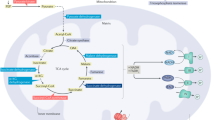Summary.
Many approaches have been undertaken to understand Alzheimer's disease (AD) but the heterogeneity of the etiologic factors makes it difficult to define the clincally most important factor determining the onset and progression of the disease. However, there is increasing evidence that the previously so-called "secondary factors" such as a disturbed glucose metabolism, oxidative stress and formation of "advanced glycation endproducts" (AGEs) and their interaction in a vicious cycle are also important for the onset and progression of AD. AGEs are protein modifications that contribute to the formation of the histopathological and biochemical hallmarks of AD: amyloid plaques, neurofibrillary tangles and activated microglia. Oxidative modifications are formed by a complex cascade of dehydration, oxidation and cyclisation reactions, subsequent to a non-enzymatic reaction of sugars with amino groups of proteins. Accumulation of AGE-crosslinked proteins throughout life is a general phenomenon of ageing. However, AGEs are more than just markers of ageing since they can also exert adverse biologic effects on tissues and cells, including the activation of intracellular signal transduction pathways, leading to the upregulation of cytokine and free radical production (oxidative stress). Oxidative stress is involved in various divergent events leading to cell damage, including an increase in membrane rigidity, DNA strand breaks and an impairment in glucose uptake. In addition, other age-related metabolic changes such as depletion of antioxidants or decreased energy production by a disturbed glucose metabolism diminish the ability of the cell to cope with the effects of radical-induced membrane, protein and DNA damage. With our improving understanding of the molecular basis for the clinical symptoms of dementia, it is hoped that the elucidation of the etiologic causes, particularly the positive feedback loops involving radical damage and a reduced glucose metabolism, will help to develop novel "neuroprotective" treatment strategies able to interrupt this vicious cycle of oxidative stress and energy shortage in AD.
Similar content being viewed by others
Author information
Authors and Affiliations
Additional information
Accepted March 1, 1998; received November 15, 1997
Rights and permissions
About this article
Cite this article
Münch, G., Schinzel, R., Loske, C. et al. Alzheimer's disease – synergistic effects of glucose deficit, oxidative stress and advanced glycation endproducts. J Neural Transm 105, 439–461 (1998). https://doi.org/10.1007/s007020050069
Issue Date:
DOI: https://doi.org/10.1007/s007020050069




